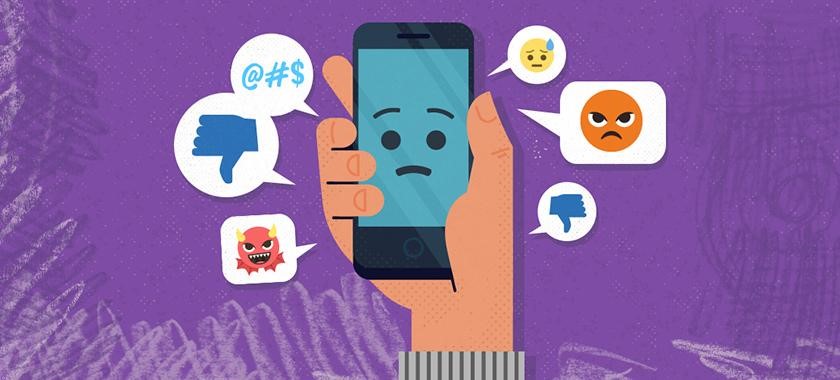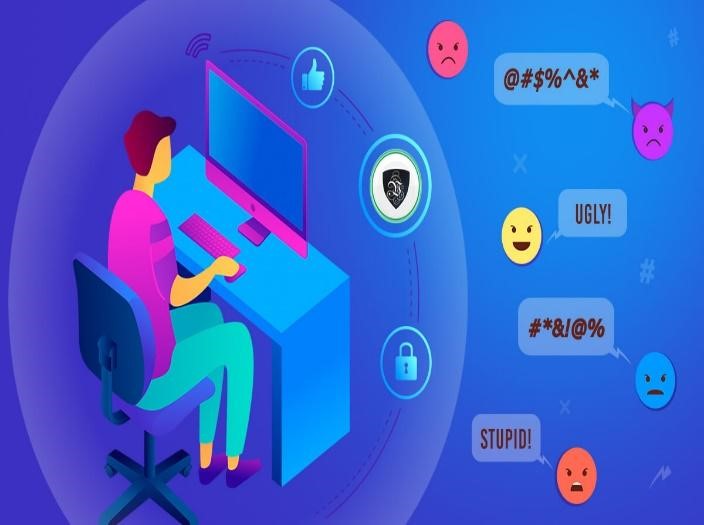The issue of cyberbullying

As technology starts to become increasingly prominent in our societies, more children are at risk of cyberbullying. Cyberbullying consists of distributing embarrassing or humiliating photos, harassment, and/or destructive communication via the internet or cell phones. Cyberbullying has resulted in students missing school, friendships being broken, and in some extreme cases, suicide.
Before technology, children who were being bullied had a safe place at home away from those bullies; however, now that cyber harassment has become an issue, even at home, some children don’t feel safe.
Here’s what the experts at Evolve Brain Training neurofeedback therapy center recommend for parents of children who may be experiencing cyberbullying.
As a parent, what can you do to minimize risk?
● Talk
Maintaining open and healthy conversations with your kids will get them to open up more if something is bothering them. Let your children know that if anything is inappropriate, distressing, or harmful, they can come to you for assistance.
● Teach
Acquire a basic understanding of Snapchat, Facebook, Instagram and Twitter, learn about internet safety, and teach your kids accordingly. Ensure that they are aware of the dangers when talking to strangers on the internet.
● Enforce
If the kids are young, make sure you are monitoring what websites they are using on the internet and who they are talking to. Set time limitations, explain why they’re in place, and go over the ground rules for online safety and Internet usage. Involve your children in the creation of the rules, and they will be more likely to follow them.
Teaching your kids internet safety

When allowing your kids on the internet, it is crucial that they are aware of all the possible dangers. Teach them about personal privacy and to ensure to never give out private information such as their age, address, or school.
Being upfront with them will also let them know you respect them. If you are monitoring their devices, let them know. Having open and honest conversations will build trust, and your kids will feel safe coming to you when they are in real danger.
These rules may be beneficial:
● Ignore communication from people they don’t know
You never know who may be on the other side of the internet; people are not always who they say they are.
● Report
Report any cyberbullying, threats, or harassment. Keeping such people off the internet is important for the safety of everyone.
● Ask for help from an adult
If in doubt, go to a trusted adult. Whether that be your parents or a teacher, they will help you and make sure you are safe.
How to spot if your child is being cyberbullied
It Is not easy to spot online abuse. Many parents are unfamiliar with the social media sites their children might be using, as well as the fact that kids have become increasingly smarter at hiding what they are doing online.
Parents should be on the lookout for signs that their child is being cyberbullied. They must keep an eye out for any changes in their child’s behavior. If you believe your child is being bullied, tell them about it in a clear, direct, and honest manner. Your child needs to know that you and other trusted adults are there for him or her.
The signs that your child may be experiencing cyberbullying can include:
- There may be a significant increase or decrease in screen time usage.
- Your child may start avoiding going to school and showing lack of interest in activities.
- Your child may appear depressed (increased sleeping and eating, and may have difficulty performing day to day tasks)
- Your child may frequently switch screens when someone walks in the room and shows obvious signs that they are hiding something.
An important message
It is unlikely your children will never encounter any form of cyberbullying, especially considering that technology is only going to advance and grow. The most important thing you can do as parents is to try to stay up to date with current social media platforms and keep ensuring your kids that they can always come to you for assistance.
If you do feel like your child is in danger, print and save messages and report these to the authorities. Keeping people who harass children away from the internet will make it safer for everyone.
Get in touch with us today to learn more about key techniques for training your brain to manage stress, depression, and anxiety related to cyber harassment.

